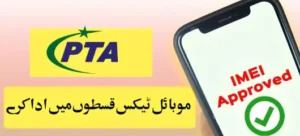Smart Cards for Vehicle Registration: Mandatory by Punjab Excise
Punjab Shifts to Smart Card Vehicle Registration: A New Era for Motorists
The Punjab Department of Excise, Taxation, and Narcotics Control has ushered in a new era of vehicle registration with the mandatory implementation of smart cards and computerized number plates.
Read More: Bikes Registration Fees increased in Punjab – Budget 2024-25
This significant overhaul aims to streamline processes, enhance security, and improve tax collection efficiency.
Read More: Latest Registration Fee for Honda CG 125 Announced
Vehicle Registration Smart Cards: The New Norm
As of July 1, 2024, all newly registered vehicles in Punjab must be issued a smart card.
This digital registration certificate replaces the traditional paper-based system and offers several advantages, including increased security, convenience, and durability.
- Mandatory Implementation: The department has successfully cleared a backlog of smart card registrations, with only those applied for between June 15 and July 20 remaining pending.
- Fee Structure: A fee of Rs. 1,300 is applicable for obtaining a smart card.
- Card Validity and Delivery: The validity period for smart cards has been extended to one month, and they will be delivered directly to owners via Pakistan Post. Currently, 14,619 smart cards are in production for Rawalpindi district alone.
Challenges with Computerized Number Plates
While the shift to smart cards is progressing smoothly, the department has encountered hurdles in the implementation of computerized number plates.
Issues related to the quality of materials have led to a temporary halt in production, forcing vehicle owners to procure number plates from the open market.
Increased Tax Collection Drive
In tandem with the new registration system, the Punjab Excise Department has intensified its tax collection efforts.
- Quarterly Targets: Motor and excise branches have been assigned ambitious quarterly tax targets, with the motor branch aiming to collect Rs. 1 billion.
- Property Tax Enforcement: The department has issued notices for Property Tax, Luxury Tax, and Commercial Property Tax across Rawalpindi Division.
- Tax Incentives: A 5% discount is offered for full first-quarter property tax payments, while a 7% discount is available for online payments. However, a 10% increase in property tax has been implemented across the board.
- Field Verification: To bolster tax collection, inspectors and field staff will conduct door-to-door and market visits.
The Punjab government has implemented a significant change in vehicle registration with the mandatory use of smart cards. This move aims to streamline the process, enhance security, and improve overall efficiency.
Understanding the New System
- Smart Cards: These are digital replacements for traditional paper registration certificates. They offer increased security, convenience, and durability.
- Computerized Number Plates: While initially planned, the implementation of computerized number plates has been temporarily halted due to quality concerns.
- Fees: A fee of Rs. 1,300 is applicable for obtaining a smart card.
- Delivery: Smart cards are produced in Lahore and delivered directly to owners via Pakistan Post.
- Timeline: The system became mandatory on July 1, 2024, with a backlog of registrations from June 15 to July 20 being processed.
How to Apply for Online Vehicle Registration in Punjab
Unfortunately, as of now, there isn’t a comprehensive online system for vehicle registration in Punjab. The process still primarily involves visiting the nearest Excise and Taxation office.
However, the government is likely to introduce online registration in the future to improve accessibility and reduce paperwork.
Steps Involved in Vehicle Registration
- Gather Required Documents: Prepare necessary documents such as vehicle ownership proof, CNIC, and other relevant paperwork.
- Visit Excise and Taxation Office: Go to your nearest Excise and Taxation office.
- Form Submission: Fill out the required registration form and submit it along with the necessary documents.
- Vehicle Inspection: Your vehicle will undergo a physical inspection to verify its details.
- Fee Payment: Pay the registration fee and smart card fee.
- Smart Card Issuance: Once the process is complete, you will receive a smart card.
Important Considerations
- Timelines: The registration process can take several days, so plan accordingly.
- Verification: Ensure all documents are accurate and complete to avoid delays.
- Follow-Up: Keep track of the application status and follow up if necessary.
Note: While the current process involves physical visits to the Excise and Taxation office, it’s advisable to check for updates on the Punjab Excise Department’s website or social media channels for any developments regarding online registration.
The Road Ahead
The transition to smart card vehicle registration is a pivotal step towards modernizing Punjab’s transportation sector.
While challenges persist with number plate production, the department’s focus on tax collection underscores its commitment to generating revenue for public services.
As the system matures, it is expected to bring about greater efficiency, transparency, and accountability in the vehicle registration process.
For more details on the new vehicle registration system, visit the Punjab Excise Department official website. Stay updated with the latest news and updates from the Punjab Excise Department to ensure compliance and take advantage of available discounts and incentives.
Note: The information above might not be accepted 100%. Please verify from your own sources. We will not be responsible/liable for any kind of loss due to our content.
For more news, please visit Munafa Marketing.




